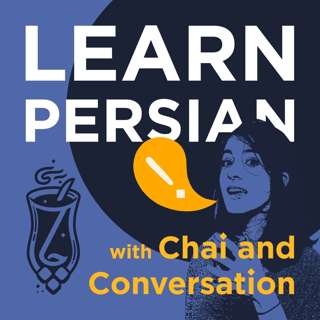
Poetry | Forough Farokhzad's fathe bagh Intro
This lesson is an introduction to one of Iran's most lauded modern poets, Forough Farrokhzad. An extremely influential voice in a time of great change in Iran, she wrote about the nature of being an artist and an independent woman in a society that often did not make these pursuits easy. Here we learn more details about this extraordinary woman's life, and analyze one of my favorite poems of hers, Conquest of the Garden (fathé bāgh) with musician Fared Shafinury.
26 Aug 201836min

Poetry | Rumi's rooz o shab Part 4
10 Juli 20189min

Poetry | Rumi's rooz o shab Part 3
27 Juni 201812min

Poetry | Rumi's rooz o shab Part 2
In the first part of our detailed study of Rumi's poem Rooz ō shab, we cover the first two lines, which are:dar havāyat bee gharāram rooz ō shabsar ze pāyat bar nadāram rooz ō shabWe go over the vocabulary and phrases in this segment of the poem, and also learn some concepts that are related to the words we are learning. We also learn about the Sufi concept, dar havāyat, of the intimacy of breath.
13 Juni 201815min

Poetry | Rumi's rooz o shab Intro
In this lesson, we learn Rumi's poem Rooz ō shab. In this poem, the words rooz, day and shab, night, are repeated like a mantra. Even though Rumi was a 13th century Persian poet, his poems remain extremely relevant and relatable today. So, don't be intimidated by the unfamiliar sounding language. Over the next few weeks, we will dissect the words and phrases used in this poem until it sounds like ordinary language to you. This poem is so beautiful, it might make you fall out of your chair.Unfortunately, there's not an easy version of Lotfi's interpretation of this poem to link to- however, if you check out this video at minute 19:00, you can hear it in all its glory. He starts by singing the poem, and eventually gets lost in the zekr, rooz ō shab, rooz ō shab, rooz ō shab.
31 Maj 201825min

Poetry | Sohrab Sepehri's dar golestané Part 4
In this final part of our Sohrab Sepehri dar golestāné series we cover the rest of the vocabulary covered in the poem. After this lesson, you will be able to understand the entirety of the selection of the poem we heard.
15 Maj 201815min

Poetry | Sohrab Sepehri's dar golestané Part 3
25 Apr 201818min

Poetry | Sohrab Sepehri's dar golestané Part 2
In this lesson, we continue the study of Sohrab Sepehri's dar golestāné by learning more about the words and phrases in the middle section of our selection.
12 Apr 201814min






















